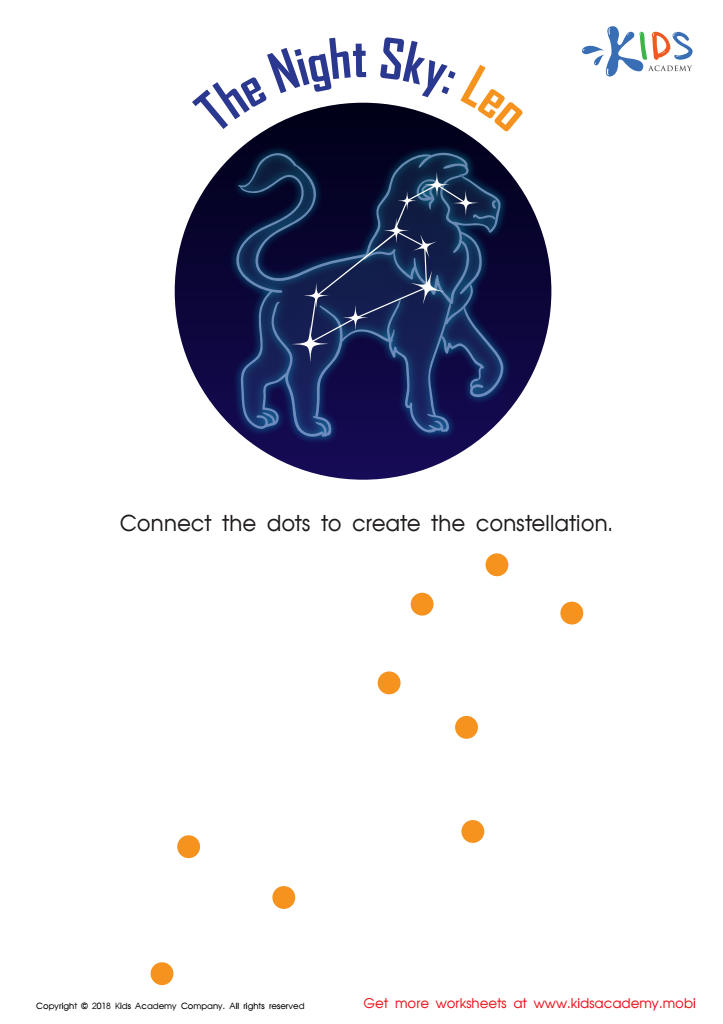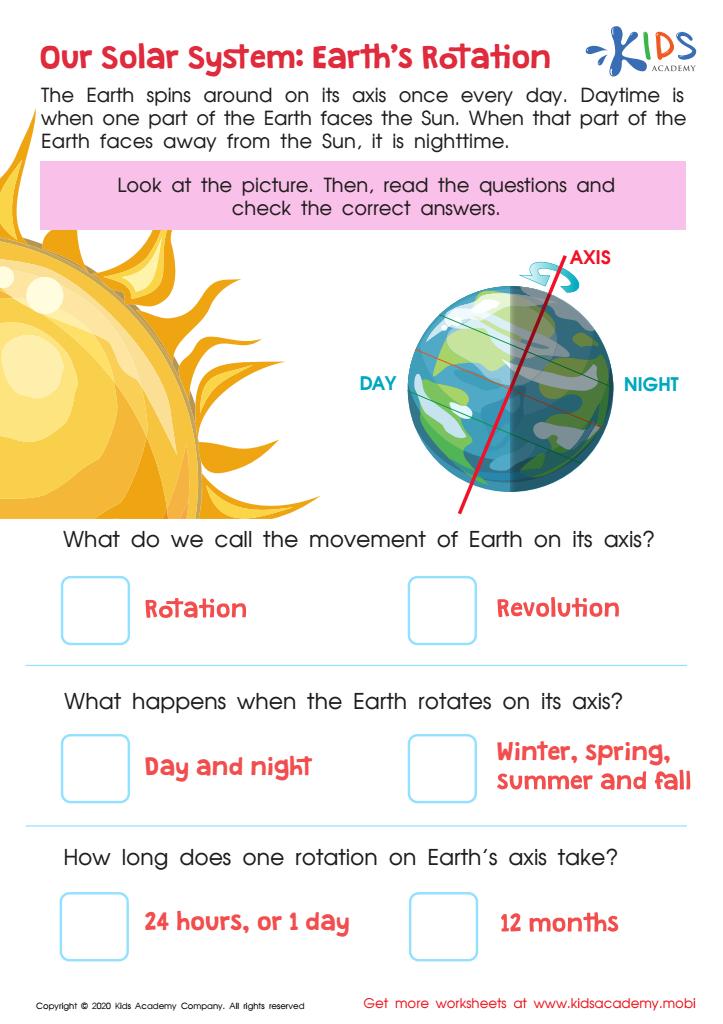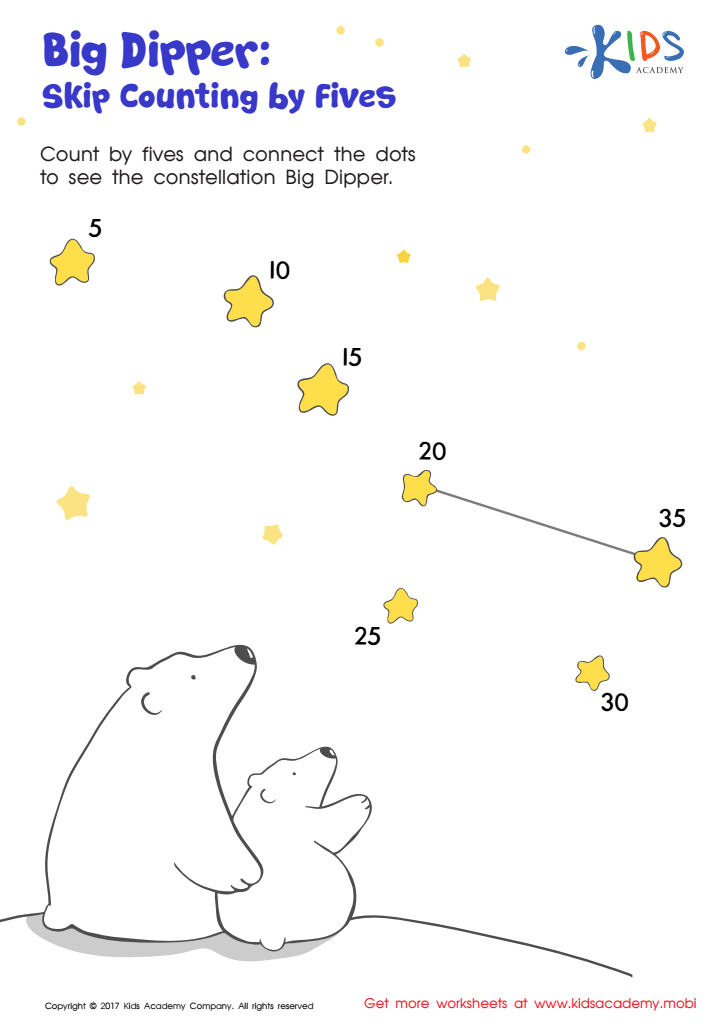Astronomy basics Normal Worksheets for Ages 3-6
3 filtered results
-
From - To
Introducing our "Astronomy Basics Normal Worksheets" designed for young learners ages 3-6! These engaging worksheets provide an exciting introduction to the wonders of the universe, encouraging early exploration of stars, planets, and space. Each activity is crafted to foster critical thinking and a love for learning, featuring enjoyable illustrations and simple tasks that make complex concepts accessible. Parents and educators will appreciate the alignment with early learning standards, promoting cognitive development and curiosity. Perfect for at-home learning or classroom activities, our worksheets help little astronauts embark on their cosmic journey, igniting their imagination and expanding their knowledge of the vast universe.


The Night Sky: Leo Worksheet


Our Solar System: Earth's Rotation Printable
Introducing astronomy to young children ages 3-6 can foster a sense of wonder and curiosity about the universe. Teaching the basics of astronomy encourages early scientific thinking and literacy. As children look up at the stars, they learn about their surroundings, sparking their imagination and creativity.
Understanding simple concepts, such as day and night, the shape of the moon, or the colors of the planets, forms a foundation for more in-depth discussions as they grow. Engaging with astronomy can also enhance vocabulary as children learn new terms, from "planet" to "star," boosting their language skills and cognitive development.
Moreover, these lessons can promote social skills as parents and teachers encourage collaboration through experiments or group discussions about the sky, shared experiences, and storytelling. Astronomy can also illustrate fundamental concepts like cycles, sizes, distances, and changes, which are crucial for developing mathematical foundations.
By embracing the wonders of the universe, parents and teachers can stimulate lifelong learning and an appreciation for science. Encouraging exploration of astronomy nurtures curiosity and critical thinking, inspiring future scientists, dreamers, and explorers in their formative years. Cultivating this curiosity now fosters a positive attitude towards learning throughout their educational journeys.

 Assign to My Students
Assign to My Students


.jpg)












